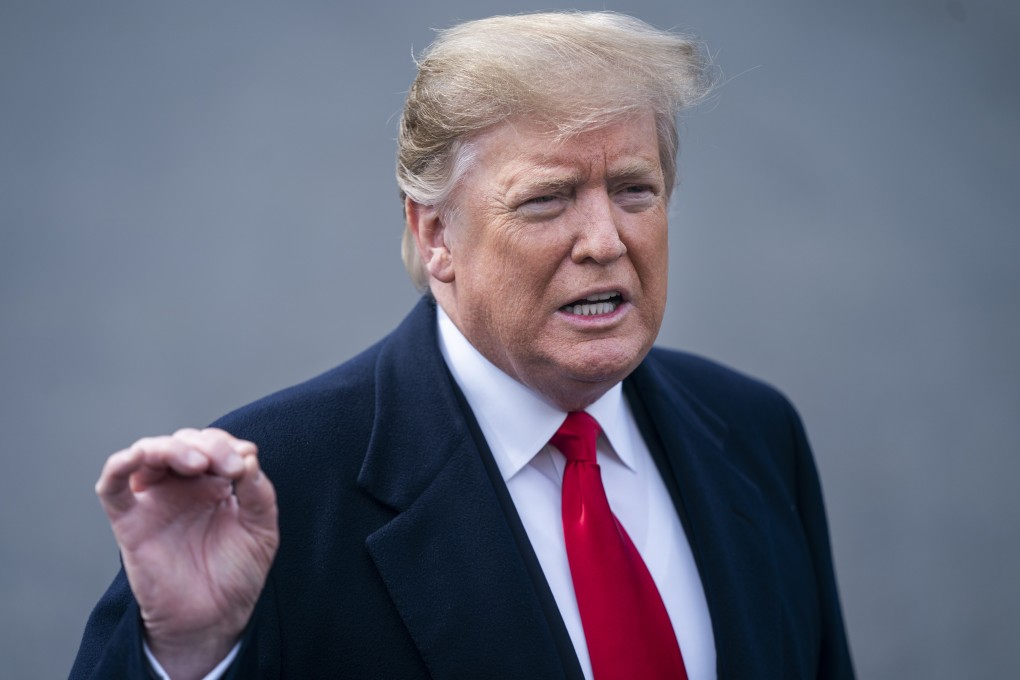US President Donald Trump says tariffs on Chinese imports may remain in place for a ‘substantial period of time’
- As the trade war between the US and China continues, Trump says tariffs will be kept in place to ensure China ‘lives by the deal’
- Trade war is now in its ninth month, with US$250 billion of Chinese goods entering the US and US$110 billion of imports from the US hit by punitive duties

US tariffs on Chinese imports could remain in place for a “substantial period of time”, even extending beyond the reaching of a trade deal between Washington and Beijing, US President Donald Trump said on Wednesday.
“We’re talking about leaving [the tariffs] for a substantial period of time because we have to make sure that if we do the deal with China, that China lives by the deal,” Trump told reporters outside the White House.
In a trade war now in its ninth month, the US has imposed duties ranging from 10 to 25 per cent on around US$250 billion of Chinese goods entering the US. In retaliation, Beijing has put tariffs on around US$110 billion of imports from the US.
Trump’s remarks came as his chief trade negotiator, Robert Lighthizer, prepares to head to Beijing next week for the latest round of high-level talks, after a weeks-long hiatus in face-to-face meetings between the two sides.
Lighthizer, the US trade representative, will travel to China with Treasury Secretary Steven Mnuchin, Politico reported on Tuesday.